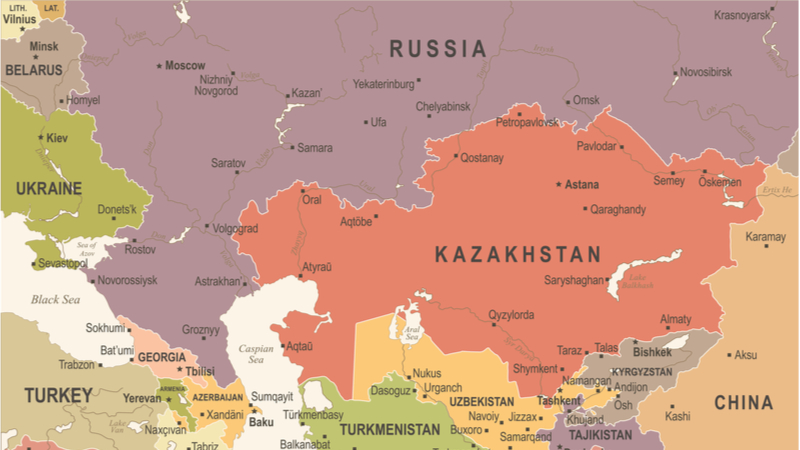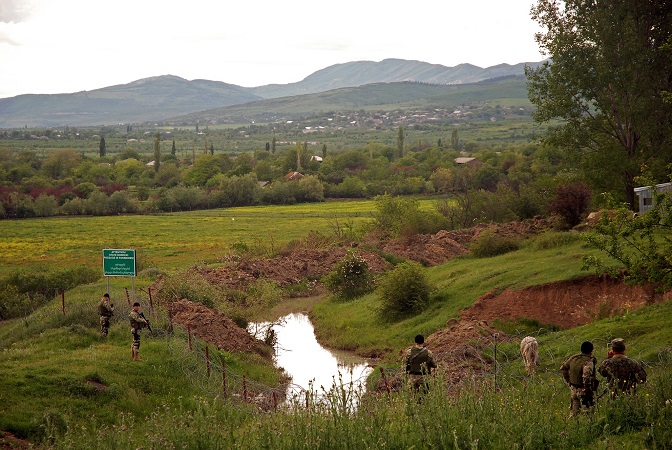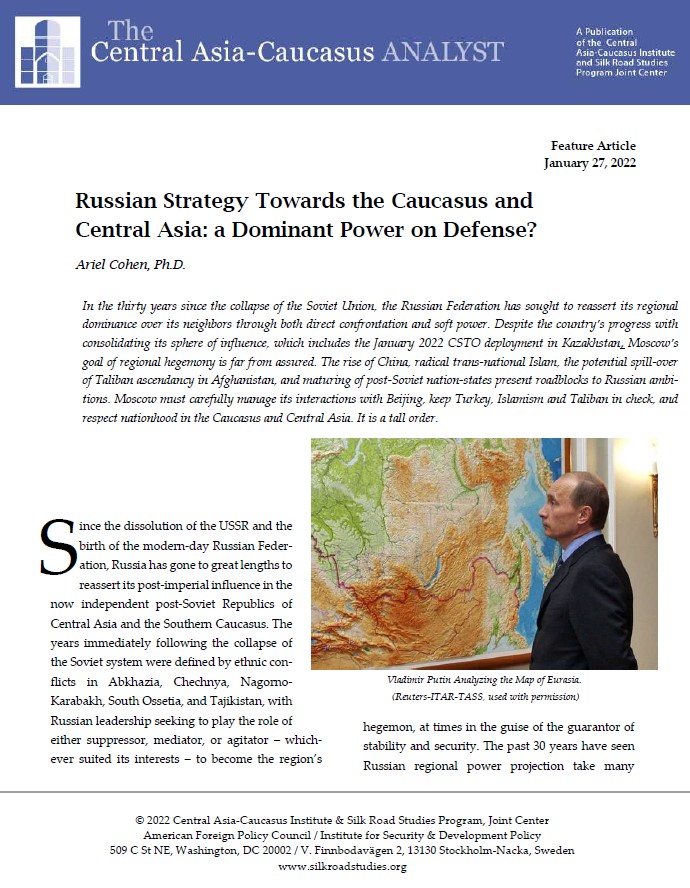Russia's War in Ukraine: Implications for Central Asia
By Johan Engvall
March 14, 2022
Russia’s invasion of Ukraine and the West’s economic response to it has put Central Asia in a precarious position. As part of what Moscow perceives as its sphere of interest, the repercussions of Putin’s war are bound to affect the Central Asian countries particularly hard. While anything but static, the nature of the Russia-Central Asia relationship still enables Moscow to retain a strong influence in the region. Russia remains the dominant security actor in Central Asia, even more so following the U.S. withdrawal from Afghanistan. Their economies remain closely interlinked with Russia, and at the political level, a distinct type of post-Soviet authoritarian leadership model with roots in the Soviet system facilitates political dialogue. Western disengagement from the region has left them more vulnerable, but the unpredictable consequences of Russia’s military adventurism might force them to realign their external relations.

South Ossetian Territorial Claims Overlap With "Fear Zones" Already Controlled by Russian Forces
By Tomáš Baranec, Giorgi Bilanishvili, Davit Katsarava, Lana Ghvinjilia
March 1, 2022, the CACI Analyst
On November 19, 2021, the South Ossetian de-facto State Commission for the Border with Georgia published its work, concluding that de facto South Ossetia had lost about 200 square kilometers to Georgia. This statement fueled a political crisis in the separatist region as local opposition sought to impeach de-facto president Anatoly Bibilov. Most experts studying these developments focus on their domestic roots and impacts. However, analysis of the Commission’s territorial claims in the context of the continuous borderization of the Georgian-Ossetian Administrative Boundary Line (ABL) and the creeping annexation of Georgian territory by Russian forces also indicates another possible dimension of this development: coordination between Tskhinvali and the Kremlin to annex stripes of land with military-strategic importance.

U.S.-Russian Cold War - At Central Asia's expense?
By Farkhod Tolipov
February 10, 2022, the CACI Analyst
Two events in December 2021 signified the growing cleavage between the U.S. and Russia: U.S. President Biden initiated the Summit for Democracy while the Kremlin proposed a treaty between the Russian Federation and the U.S. on security guarantees, purportedly to ensure the security of the Russian Federation and NATO member states. Both initiatives pose challenges to the former Soviet republics of Central Asia in terms of their independence as well as their long-term perspective of political development. These events test Central Asian countries’ ability to withstand neo-imperial pressure, as well as their stated commitment to democratic choice.

Russian Strategy Towards the Caucasus and Central Asia: a Dominant Power on Defense?
Russian Strategy towards the Caucasus and Central Asia: A Dominant Power on Defense?
By: Ariel Cohen, Ph.D.
In the thirty years since the collapse of the Soviet Union, the Russian Federation has sought to reassert its regional dominance over its neighbors through both direct confrontation and soft power. Despite the country’s progress with consolidating its sphere of influence, which includes the January 2022 CSTO deployment in Kazakhstan, Moscow’s goal of regional hegemony is far from assured. The rise of China, radical trans-national Islam, the potential spill-over of Taliban ascendancy in Afghanistan, and maturing of post-Soviet nation-states present roadblocks to Russian ambitions. Moscow must carefully manage its interactions with Beijing, keep Turkey, Islamism and Taliban in check, and respect nationhood in the Caucasus and Central Asia. It is a tall order.
Since the dissolution of the USSR and the birth of the modern-day Russian Federation, Russia has gone to great lengths to reassert its post-imperial influence in the now independent post-Soviet Republics of Central Asia and the Southern Caucasus. The years immediately following the collapse of the Soviet system were defined by ethnic conflicts in Abkhazia, Chechnya, Nagorno-Karabakh, South Ossetia, and Tajikistan, with Russian leadership seeking to play the role of either suppressor, mediator, or agitator – whichever suited its interests – to become the region’s hegemon, at times in the guise of the guarantor of stability and security.
The prospect of six-party regional cooperation in the South Caucasus
By Fuad Shahbazov
January 26, 2022, the CACI Analyst
On October 6, 2021, Russia’s Minister of Foreign Affairs Sergei Lavrov met his Iranian counterpart Hossein Amir Abdollahian in Moscow to discuss regional security and economic cooperation, and to address important concerns regarding the crisis in the South Caucasus. During the joint press conference, Lavrov repeatedly highlighted the idea of a “3+3 cooperation format” including the three South Caucasus states – Armenia, Azerbaijan, and Georgia – plus their three large neighbors, Russia, Turkey, and Iran, to focus on unlocking economic and transport communications in the region. The first meeting within the format took place in Moscow on December 2021; however, Georgia refused to take part. Moreover, recent tensions in the region between Armenia and Azerbaijan as well as Azerbaijan and Iran suggest that the proposed format will not generate visible positive outcomes.









